Here’s a popular question on Quora: What’s the secret to a successful coffeeshop?
There’s a great answer by Peter Baskerville, which we’ve reproduced here with some light editing:
1.Consistently serving the finest espresso
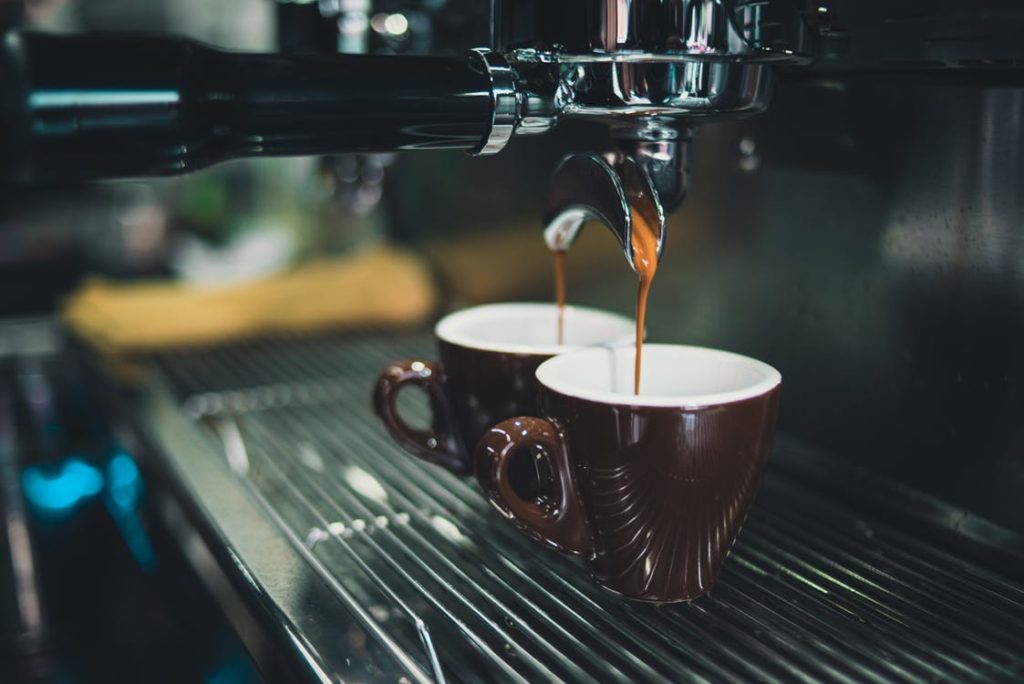
It is rare in business to discover a product where consistently offering 100% quality is the best commercial decision you can make. In fact I’m the greatest advocate for the ‘80% is perfect’ commercial model.
But espresso coffee is one of those rare products where consistent 100% quality matters. Customers will walk past 10 other competitors to get the best espresso — this factor alone means you don’t need the highly visible, most expensive location.
So…
- buy the best espresso coffee machine (3/4 group Italian made with e61 groupheads and set to the right pump and temperature levels),
- install it with a water purifier and demineralizer,
- use a conical grinder,
- only buy top quality Arabica or Arabica 90%/Robusta 10% freshly roasted beans, and
- make sure every cup is made by a fully trained barista who is continually seeking the ‘the god shot‘.
2. Ergonomics is vital
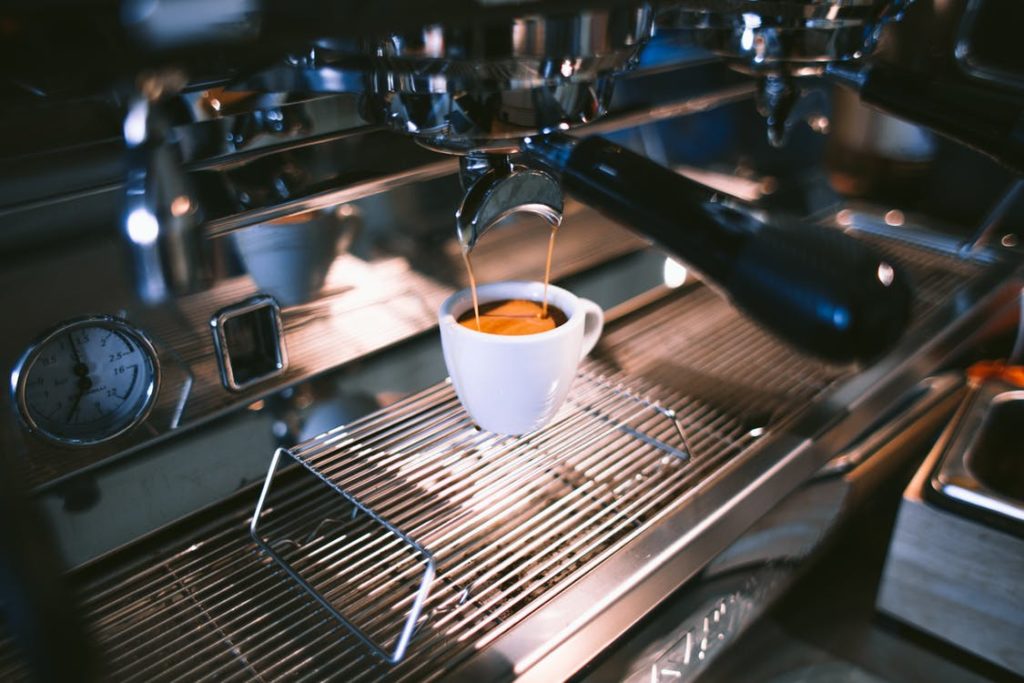
Make sure the coffee workstation and layout is such that the barista hardly moves their feet in performing all their coffee making duties, and they are not competing for the space with other staff members or functions.
High volume coffee sales are the foundation stone of every coffee shop, so make sure this workstation is perfectly laid out with easy access to underneath bins, bean storage and bar fridge milk, having the right height bench-top with easy access to cups, grinder, accessories and reachable overhead storage of supplies.
The best setups also have a small inbuilt sink to allow for quick, easy ongoing cleaning.
Also, place the cash register on the front counter in close proximity to the barista’s workstation. This allows the barista to hear the customer orders and get a head start on making them in the busy times while allowing the barista to work alone in an efficient way in the very slow times.
3. Use loyalty cards to delight customers
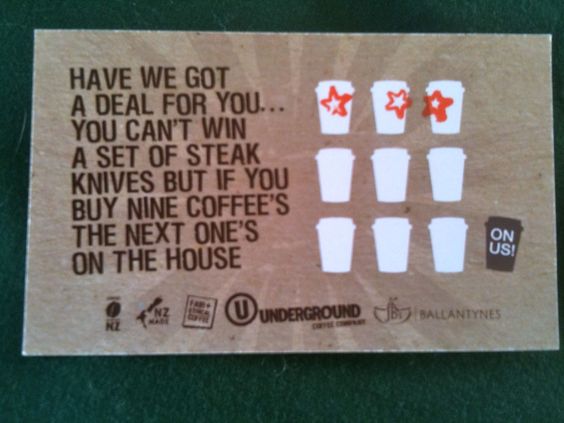
I resisted using these for a long time … but they really do work. Make sure it is a quality card that will survive some wear and tear and look good in a customer’s wallet.
There’s nothing better than seeing a new customer’s face light up when you give them a buy 7 get the 8th one free loyalty card but tick off 6 of them so that on their very next purchase they get a free one ‘maybe for a friend’. Cheapest customer acquisition and referral system ever.
Looking for a modern, seamless loyalty experience? Try CandyBar for free today!
4. Promote multiple sales
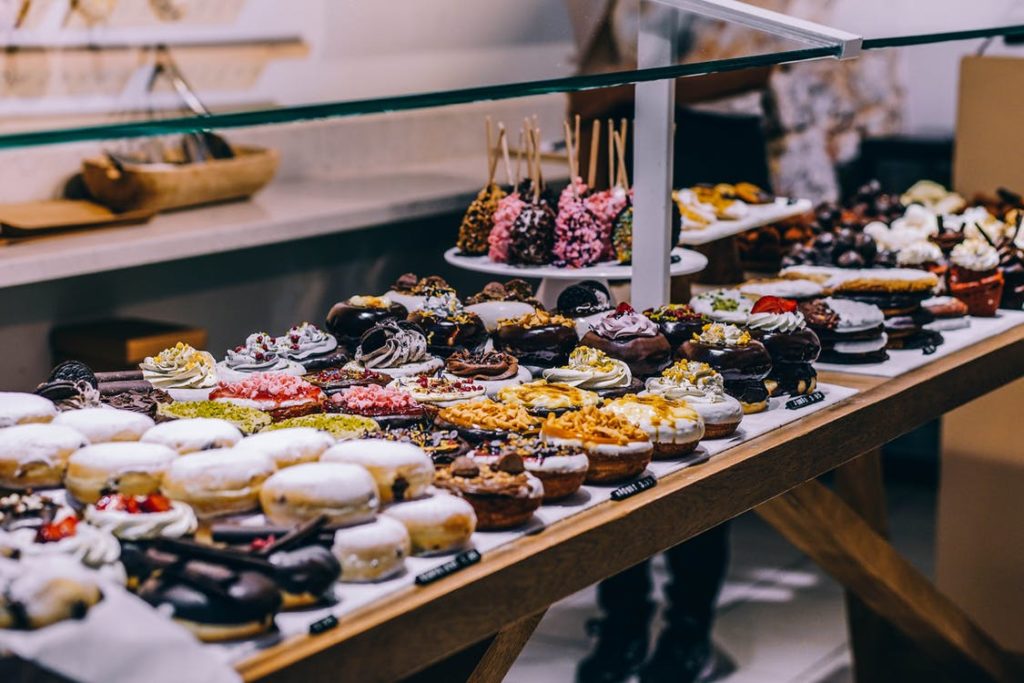
A coffee shop will never make enough money to pay the bills from coffee sales alone. Coffee may be the prime motivator for customers coming to the business, but they must leave with multiple sales if you are going to be successful.
As a target, coffee should be no more than 40% of your weekly sales and 2 item sales per customer transaction is the ‘holy grail’ benchmark. So make sure the traditional coffee accompaniments (muffins, cookies, cakes) are close by at the point-of-sale and the coffee shop offers cold food, cold drinks and some hot food to ensure the best chance of multiple sales.
5. Limit the assortment
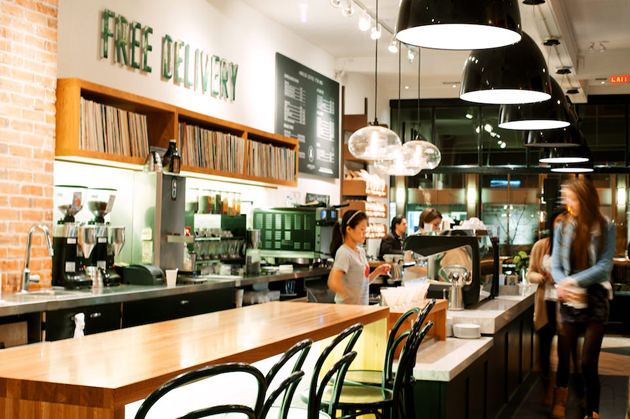
Many newbies in the coffee shop game think that wide assortments and extensive product offers are a key competitive advantage. They forget that the customer is simply hungry or thirsty or both and that a wide range of choices creates anguish for most people. So cover the necessary categories but with limited strategic offers. (e.g. three flavors are enough, three sizes are enough, three types of food/drink are enough).
Every item you add to the assortment creates many multiples of management effort (costs) and mostly without adding anything to the revenue streams or customer experience.
6. Merchandise your margins
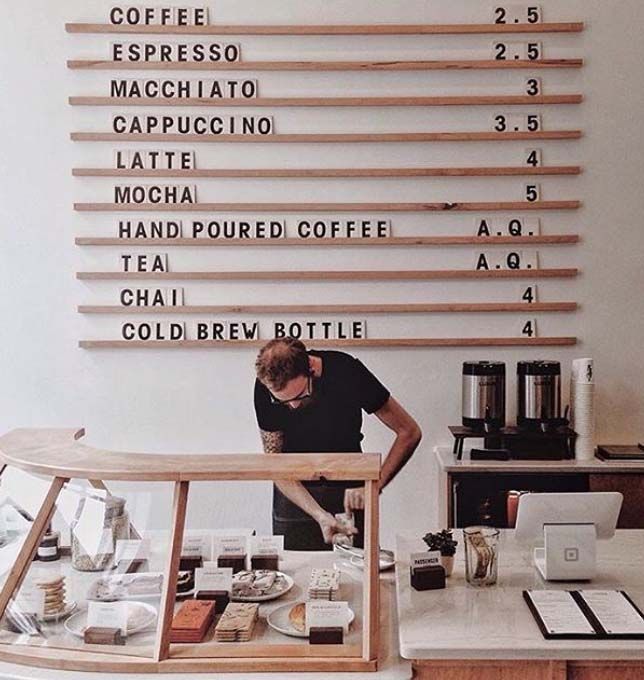
Price according to perceived customer value not according to accounting determined markups. For some well known items (a can of coke, for example) you will need to be at or even below market price and this loss should be made up with high margins on other items that are exclusive to you or in the ‘don’t-care and addictive’ mindset of your customers.
So don’t add a blanket markup to your entire product assortment, but price line by line according to customer expectations and what the market will bear.
7. Get your beachhead strategies right

Getting traction in a competitive marketplace like coffee shops is vital and you will need to have a clear understanding of how to get customers to initially give you a go and a plan for keeping them returning and referring you to their friends.
This is a whole other topic that Peter has written about here: What are some Biz Dev best practices for startups?
8. Counter service
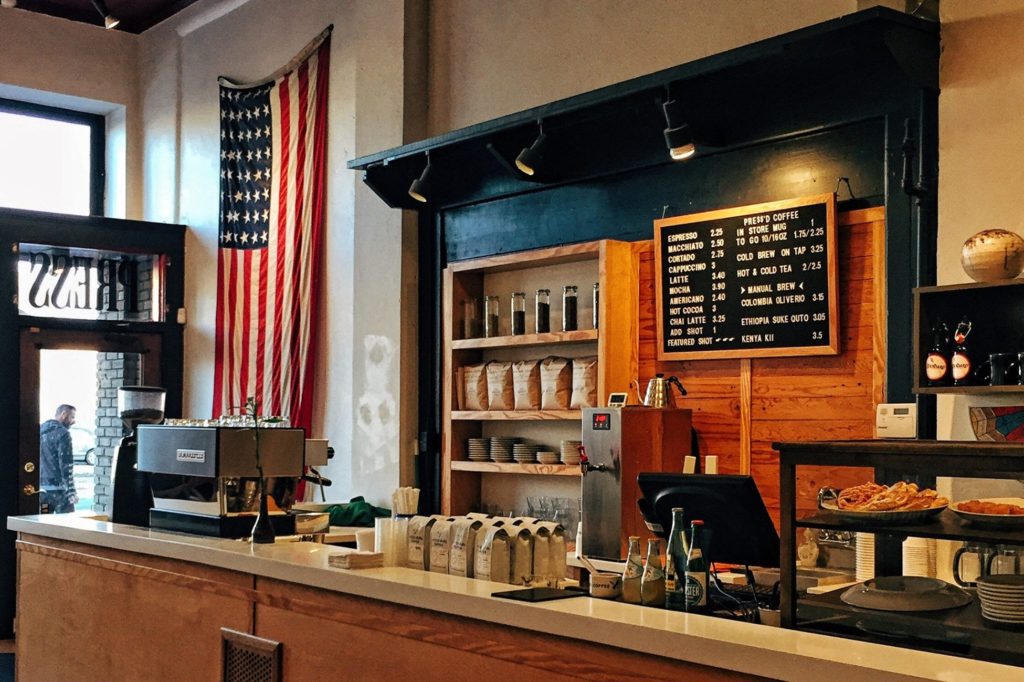
Counter service is the cheapest most efficient and effective service system for a coffee shop and it is now fully accepted by customers thanks to the global success of McDonalds. Counter service is hassle free for both you and your customer and it significantly reduces your wages bill. So get the customers to order and pay upfront, give them a number on a stand along with their drinks and deliver the food or better still give them a buzzer that calls them up to the counter when the food is ready.
Counter service means that you can handle the peak demands that occur in coffee shops at breakfast and lunch and it is a lot less stressful on everyone ensuring the friendly banter can remain an important part of your offer.
9. Pre-make as much as possible
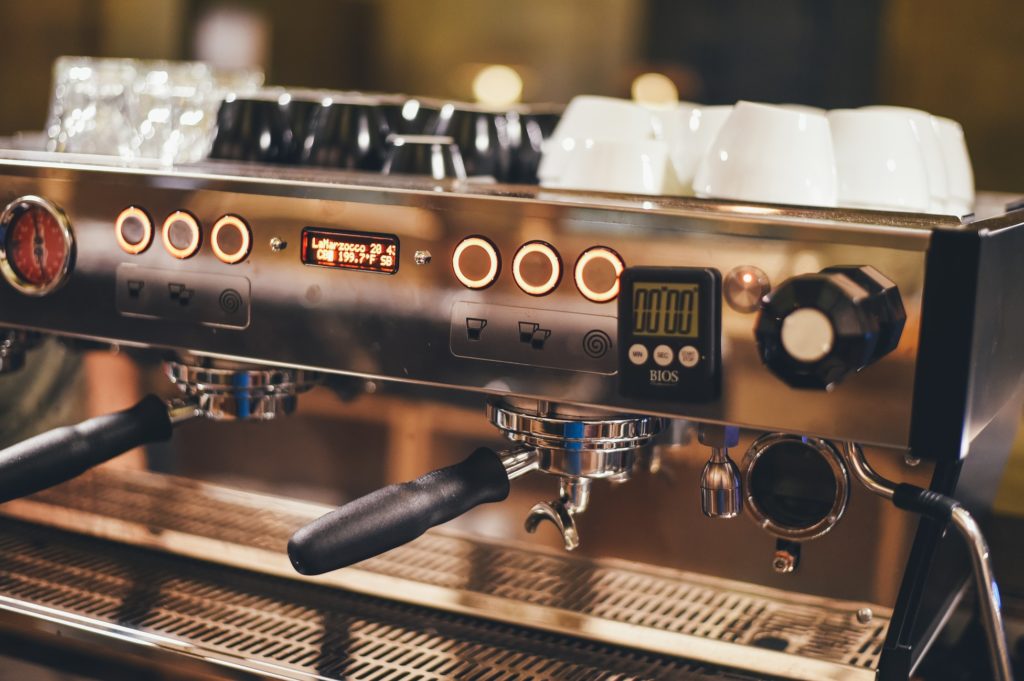
Custom-made offers assume that the customers know precisely what they want. They don’t. Customers see you as the expert and are hoping that you will suggest to them the right combination of food/drinks they should be trying.
In a coffee shop context I found it best to pre-make the food and leave the custom making to the coffee. Custom food is also a high cost option for you because you can’t get the economies of scale making-to-order and it limits your turnover in those peak periods where you should be busy pumping out the sales as quickly as possible not spending the time making custom orders.
10. Understand what you are really selling

Too many businesses, including coffee shop owners, don’t fully understand the need they are really satisfying for their customers and so they often concentrate on the wrong parts of their offer.
Customers frequent a coffee shop for many more reasons than just hunger and thirst. There is the escape from a stressful office, the chance to maintain or grow a relationship, a place to get away to do some reflective work, a chance to engage with familiar coffee shop staff at a particularly lonely time or as a place to do business and reach an agreement.
Understanding the needs you are really catering to, will help you better construct your offer and make decisions that keep your customers returning and so maintaining the coffee shop’s success.
11. Target takeaways

I know all your friends will tell you to get comfortable lounges, free Wi-Fi, table service and lots of in-house entertainment … but customers sitting on one cup of coffee for hours enjoying all these benefits, won’t pay your rent.
My most financially successful coffee shops had a limited number of not-so-comfortable bench & bar stools to make the coffee shop look lived in and loved, but I concentrated on building the takeaway business.
Takeaway customers pay the same price as the sit-down customer but without any of the occupancy costs and you will serve 10 of them by the time your sit down customer has finished sipping on their first cup of coffee as they enjoy a chat with their friends on Facebook using your free Wi-Fi service.
12. Serve on the front line
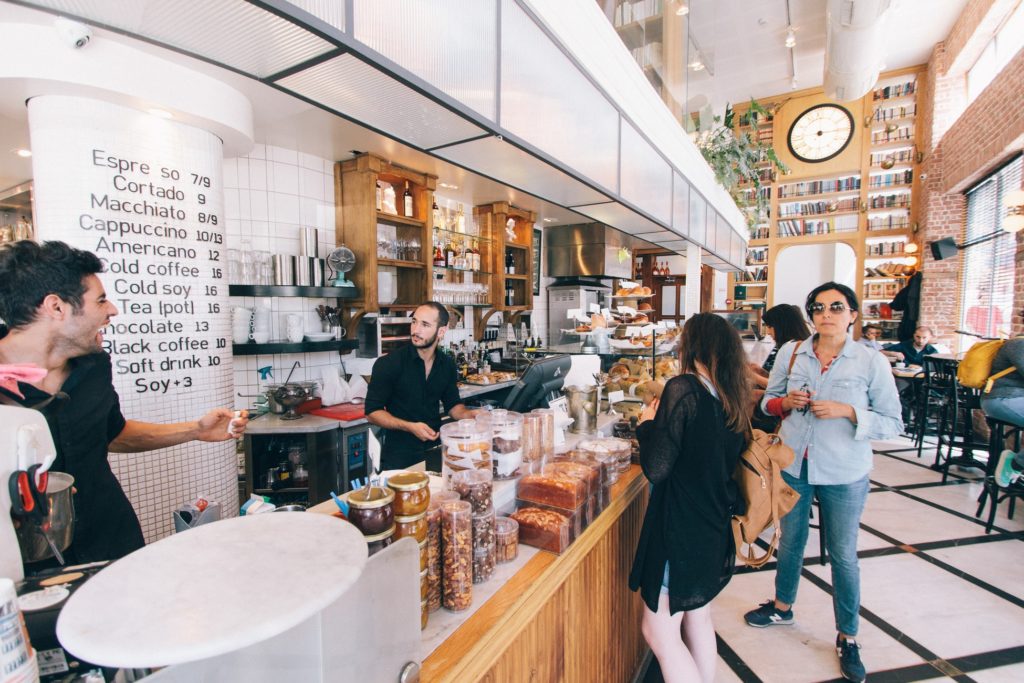
Coffee shops, like restaurants, are much more a people/service business than they are a goods/transactional one. While a goods/transactional business can still succeed with a non-present owner (convenience store), a coffee shop needs the owners care, attention and engagement.
Customers expect it and staff are far more enlivened when the owner is on hand taking orders, making coffee, or just generally hovering around actively caring for the business.



